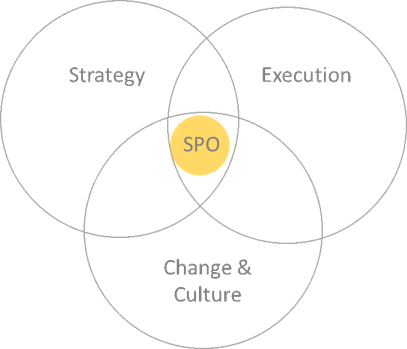Some once said that “sport imitates life” or something to that effect.
Like a goalkeeper who cops it for letting in a late goal even though the goal scorer had expertly weaved their way through 10 defenders first before putting it past the keeper. Traditional PMO’s have become an easy target for Execs looking to point the finger or looking to make organisational cuts. This is unfortunately evidenced by the rather short lifespan statistics for PMO’s of 5 years – according to the State of the PMO report 2016. (side note – many PMO’s are set up to deliver a large project or programme and by their very nature have a short finite lifecycle but that’s a conversation for another day)
The value of the goalkeeper’s contribution to the team, much like that of traditional PMO’s is often overlooked. The numerous saves, rock solid support to those on the field, a key communication point and ability to read the game, PMOs and goalkeepers have much in common.
Don’t get me wrong, I think traditional PMO’s have scored plenty of own goals with respect to contributing to failed deliveries under their guidance or failing to deliver on the value they so clearly promised. But I believe that some Enterprise PMO’s (EPMO) are learning from theirs and other’s mistakes and evolving fast. The arrival of the next generation of EPMO’s, the “Strategic Portfolio Office” (SPO) is starting to surface, and they have a valuable role to play in their organisations delivery of strategy and influencing culture.

The growing prominence of the SPO has its own sporting parallels if you will let me run with this particular sporting analogy just a little bit further, SPO’s are much more akin to the new breed of football (soccer) coach. The modern era coach has all the skills and remit to prioritise a long season of games in an effort to win as many games as possible, translate game strategy into execution on the field, promote innovation within the team, coaching the team to quickly adjust to the game unfolding around them and foster a winning culture.
SPO’s much like their coaching equivalents play a similar role in the workplace. Everyone loves a good Venn diagram so here’s one to depict where the new Strategic Portfolio Offices are starting to make their mark.
Strategy – to understand where your company is heading you simply need to have a look at your portfolio of projects and programmes in play and pipeline. This to me highlights the blurring of traditional lines between strategy functions and those of the SPO’s. I’m not intimating for a second that SPO’s devise org strategy but advocating for the role they play in determining how that strategy is delivered. With such a lofty responsibility maybe the SPO needs to hold a seat at the big table alongside CIO’s to be fully effective. The emergence of the CPO – Chief Portfolio Officer is starting to spring up in some organisations in recognition of this movement of responsibility.

Execution – the bread and butter of most traditional PMO’s by providing the single centralised standards and governance practices by which all project delivery is managed within an organisation. But SPO’s are bringing more to the table and recognise that “one size does not fit all”. By this I mean SPO’s are adopting a multi-modal approach by helping teams select the most appropriate delivery approach (Agile, Scrum, Waterfall, Critical Path, Kanban, Lean etc) and then supporting teams by equipping them with what they need to be successful..
Change / Culture – sometimes the domain of other business areas, SPO’s are starting to stake their claim in shaping organisational culture by driving organisational change management. Coupled with the fact that the ever growing number of individuals in organisations continuously involved with projects and programmes to some extent also look to the SPO’s for guidance on “how it’s done around here”. Contemporary SPO’s are able to influence organisational culture by championing innovation, promoting flexibility in approach, continuously raising capability and leading by example
According to the Project Management Institute report 2017, companies that have an effective Enterprise Portfolio Management Office (EPMO) report that 38% more projects meet their original goals and business intentions and 33% fewer projects fail”.
Like a coach, SPO’s will be judged on the results they deliver in enabling their organisation to be successful. I think that if SPO’s can continue to take a page out of the playbook of the modern delivery methods that they support and rapidly adapt to the organisations changing needs they should be on the winning side.



